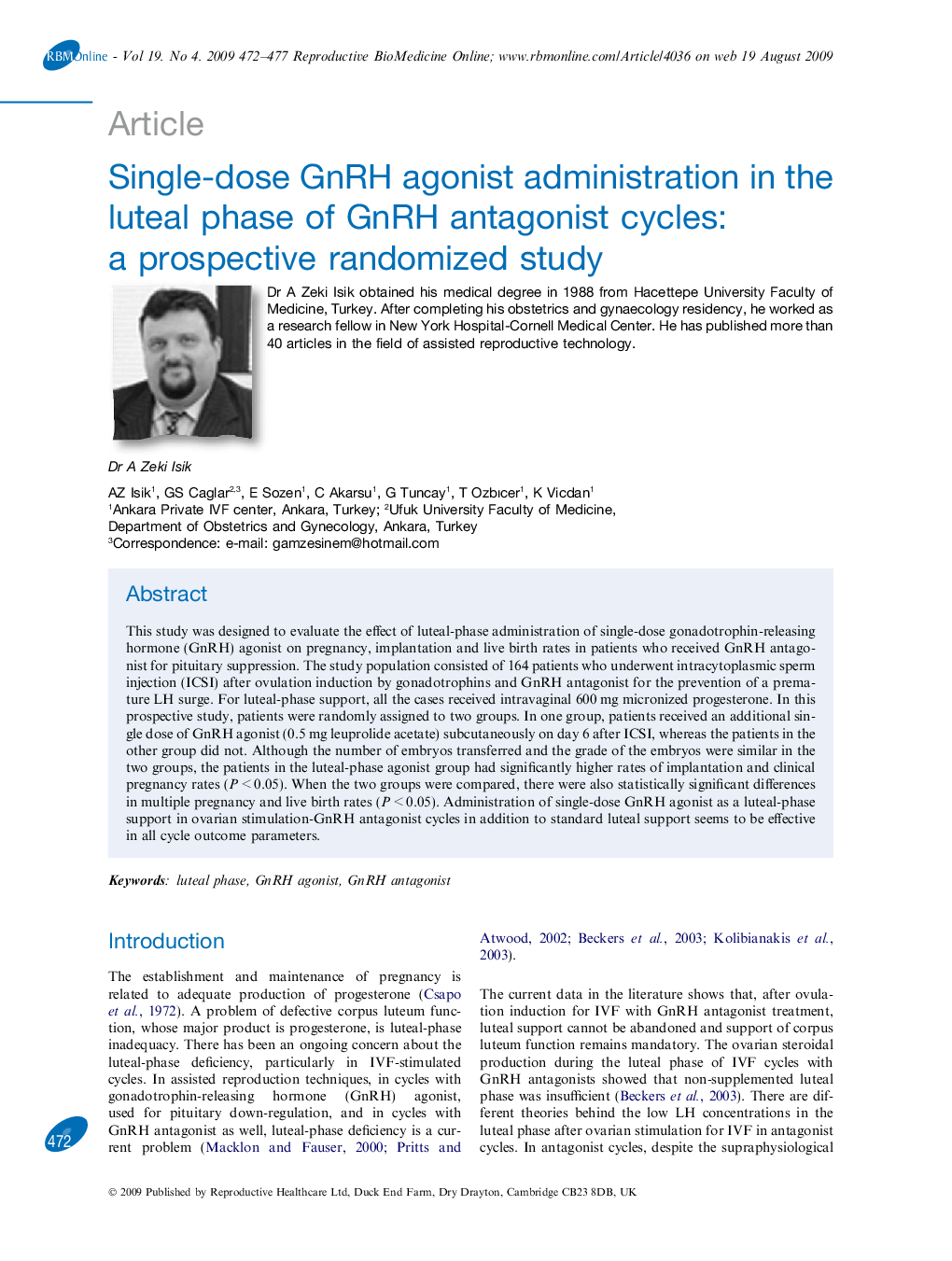| Article ID | Journal | Published Year | Pages | File Type |
|---|---|---|---|---|
| 3972169 | Reproductive BioMedicine Online | 2009 | 6 Pages |
Abstract
This study was designed to evaluate the effect of luteal-phase administration of single-dose gonadotrophin-releasing hormone (GnRH) agonist on pregnancy, implantation and live birth rates in patients who received GnRH antagonist for pituitary suppression. The study population consisted of 164 patients who underwent intracytoplasmic sperm injection (ICSI) after ovulation induction by gonadotrophins and GnRH antagonist for the prevention of a premature LH surge. For luteal-phase support, all the cases received intravaginal 600Â mg micronized progesterone. In this prospective study, patients were randomly assigned to two groups. In one group, patients received an additional single dose of GnRH agonist (0.5Â mg leuprolide acetate) subcutaneously on day 6 after ICSI, whereas the patients in the other group did not. Although the number of embryos transferred and the grade of the embryos were similar in the two groups, the patients in the luteal-phase agonist group had significantly higher rates of implantation and clinical pregnancy rates (PÂ <Â 0.05). When the two groups were compared, there were also statistically significant differences in multiple pregnancy and live birth rates (PÂ <Â 0.05). Administration of single-dose GnRH agonist as a luteal-phase support in ovarian stimulation-GnRH antagonist cycles in addition to standard luteal support seems to be effective in all cycle outcome parameters.
Related Topics
Health Sciences
Medicine and Dentistry
Obstetrics, Gynecology and Women's Health
Authors
A.Z. Isik, G.S. Caglar, E. Sozen, C. Akarsu, G. Tuncay, T. Ozbıcer, K. Vicdan,
